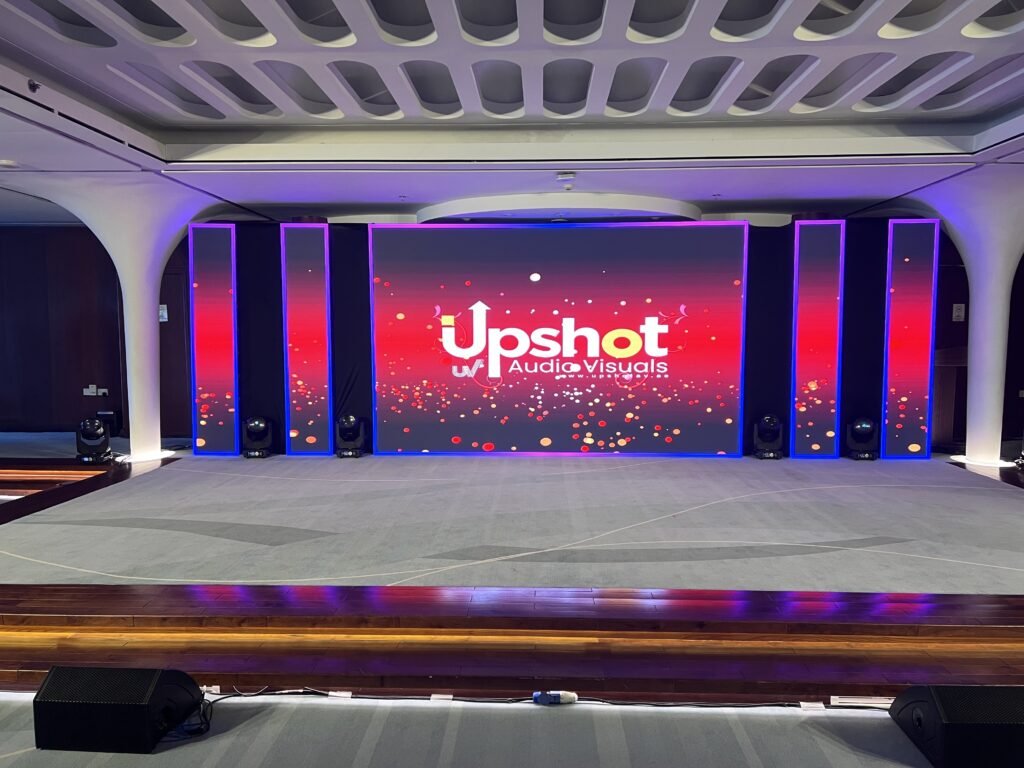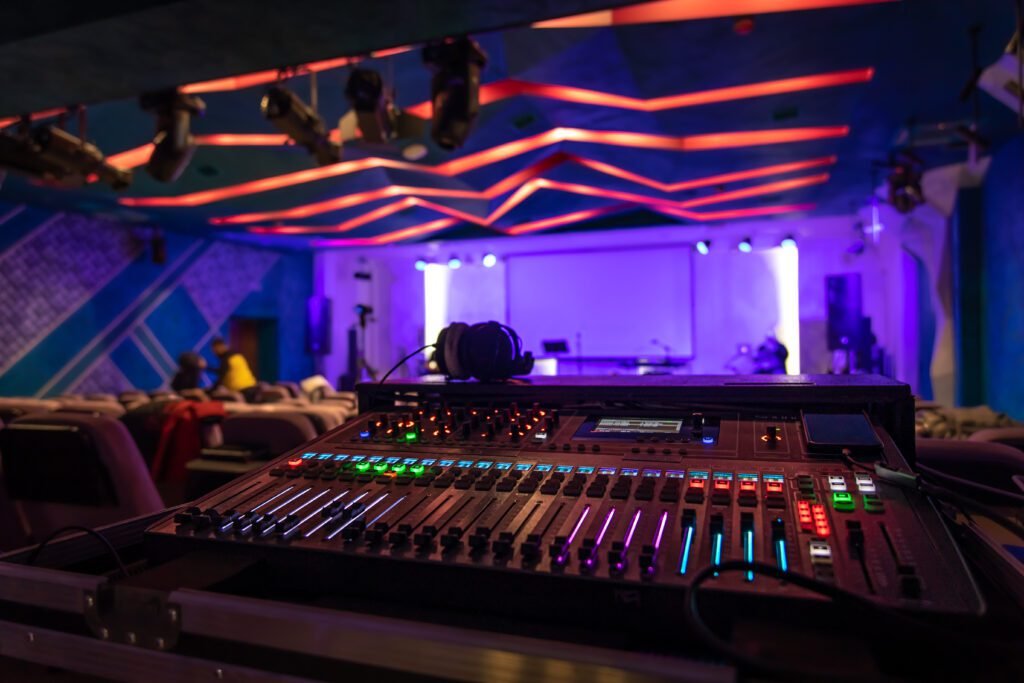The Advantages of LED Screen Rental:
Why it’s the Perfect Solution for Your Event
Are you looking for a way to make your event stand out from the rest? LED screen rental could be the perfect solution for you. With its bright, vibrant display and high-resolution visuals, LED screens are guaranteed to grab the attention of your audience and leave a lasting impression. Whether you’re hosting a corporate conference, a trade show, or a music festival, LED screens offer a range of advantages that can enhance the overall experience for both you and your attendees.
One of the key advantages of LED screen rental is its flexibility. LED screens come in various sizes, allowing you to tailor the display to fit your venue and audience size. You can also choose from different shapes, such as curved or flat screens, to create a visually stunning display. Additionally, LED screens are easy to set up and can be quickly assembled and disassembled, making them a convenient choice for events of all sizes.
Furthermore, LED screens offer excellent image quality, with sharp and crisp visuals that are visible from a distance. This makes them ideal for showcasing presentations, videos, and live feeds during your event. LED screens are also highly customizable, allowing you to display branding elements, sponsors’ logos, and other dynamic content.
In conclusion, LED screen rental provides numerous advantages that can elevate your event to the next level. Its flexibility, stunning visual display, and customization options make it the perfect solution for any type of event.
LED screen rental offers numerous benefits that can greatly enhance your event experience. One of the key advantages is its flexibility. LED screens come in various sizes, allowing you to tailor the display to fit your venue and audience size. Whether you’re hosting a small conference or a large-scale music festival, LED screens can be customized to meet your specific requirements. Additionally, LED screens come in different shapes, such as curved or flat screens, which can create a visually stunning display that adds a unique touch to your event.
Another advantage of LED screen rental is the cost-effectiveness it offers. Purchasing a high-quality LED screen can be a significant investment, especially if you only require it for a one-time event. Renting an LED screen allows you to access the latest technology without the hefty price tag. This way, you can allocate your budget towards other important aspects of your event, such as marketing or entertainment.
Cost-effectiveness of LED screen rental
LED screen rental provides a cost-effective solution for your event needs. Purchasing LED screens can be expensive, especially if you only need them for a limited time. By choosing to rent LED screens, you can save money while still enjoying the benefits of this advanced technology.
Flexibility and customization options
LED screens are known for their flexibility and customization options, making them an ideal choice for events of all types and sizes. LED screens can be easily set up and disassembled, allowing for quick installation and removal. This is particularly beneficial if you have limited setup time or need to move the screens between different locations during your event. The ease of setup also means that you can focus on other important event preparations without worrying about technical difficulties.
Furthermore, LED screens offer a high degree of customization. You can display branding elements, sponsors’ logos, and other dynamic content on the screens, creating a visually engaging experience for your attendees. LED screens can also be programmed to display different visuals at specific times, allowing you to schedule content changes throughout your event. This flexibility and customization options ensure that your event remains visually captivating and tailored to your specific needs.
High-quality visuals and enhanced audience engagement
One of the standout features of LED screens is their excellent image quality. LED screens produce sharp and crisp visuals that are visible from a distance, ensuring that every attendee can enjoy a clear view of the content being displayed. This makes LED screens perfect for showcasing presentations, videos, and live feeds during your event. Whether you’re hosting a keynote speech or a live concert, LED screens will ensure that your audience doesn’t miss out on any important details.
Moreover, LED screens can greatly enhance audience engagement. The vibrant and dynamic nature of LED screens captures attention and creates an immersive experience for your attendees. By displaying captivating visuals and interactive content, LED screens can effectively communicate your message and leave a lasting impact on your audience. Whether it’s displaying real-time social media feeds or interactive games, LED screens provide endless opportunities to engage and entertain your attendees.
LED screen rental can be beneficial for a wide range of events. From corporate conferences to trade shows and music festivals, LED screens can enhance the overall event experience and create a memorable impact. In a corporate setting, LED screens can be used to display presentations, showcase products, and communicate important messages to attendees. For trade shows, LED screens can attract attention to your booth and provide an interactive platform to showcase your products or services. In the entertainment industry, LED screens can create an immersive experience for attendees by displaying live performances, music videos, and stunning visuals.
Factors to consider when choosing an LED screen rental company
When choosing an LED screen rental company, there are several factors to consider. First and foremost, ensure that the company offers a wide range of LED screen options to suit your specific event requirements. Consider the size, shape, and resolution of the screens to ensure they align with your vision. It’s also important to inquire about the company’s technical support and maintenance services to ensure that any potential issues can be quickly resolved during your event.
Additionally, consider the reputation and experience of the LED screen rental company. Look for reviews and testimonials from previous clients to get an idea of the company’s track record and customer satisfaction. A reputable company will not only provide high-quality LED screens but also offer professional advice and guidance throughout the rental process. Take the time to research and compare different companies to ensure you choose the best option for your event.
How to set up and operate LED screens at your event
Setting up and operating LED screens at your event can be a straightforward process with the right preparation. Prior to your event, communicate with the LED screen rental company to understand the setup requirements and any additional equipment you may need, such as mounting brackets or cables. Ensure that you have a designated area for the screens that provides optimal visibility for your attendees.
On the day of the event, allocate sufficient time for the setup and testing of the LED screens. Follow the instructions provided by the rental company to assemble the screens correctly. Test the screens and ensure that all visuals and content are displaying correctly. It’s also important to have a dedicated technical team or support staff on-site to handle any potential issues that may arise during the event. With proper planning and coordination, the setup and operation of LED screens can be seamless, allowing you to focus on delivering a memorable event experience.
Case studies of successful events using LED screen rental
To further illustrate the advantages of LED screen rental, let’s explore some case studies of successful events that have utilized this technology. One example is a large-scale music festival that used LED screens to display live performances and visuals. The high-quality visuals and vibrant display created an immersive experience for the attendees, enhancing their overall enjoyment of the festival. The LED screens also allowed for easy visibility from different areas of the festival grounds, ensuring that no attendee missed out on the action.
In another case, a corporate conference utilized LED screens to display presentations and branding elements. The flexibility and customization options of the LED screens allowed the organizers to create a visually appealing and engaging environment for the attendees. The sharp image quality and vibrant colors of the LED screens ensured that the presentations were clear and impactful, leaving a lasting impression on the conference participants.
These case studies highlight the versatility and effectiveness of LED screen rental in various event settings. The ability to tailor the display to meet specific event requirements, coupled with the high-quality visuals and enhanced audience engagement, makes LED screen rental an invaluable tool for event organizers.
In conclusion, LED screen rental provides numerous advantages that can elevate your event to the next level. Its flexibility, stunning visual display, and customization options make it the perfect solution for any type of event. LED screens offer cost-effectiveness, high-quality visuals, and enhanced audience engagement, ensuring that your event stands out from the rest.
As event technology continues to evolve, LED screens are at the forefront of innovation. With their ability to create immersive experiences and captivate audiences, LED screens are shaping the future of event technology. Whether you’re hosting a corporate conference, a trade show, or a music festival, consider the advantages of LED screen rental and how it can enhance your event experience. Embrace the power of LED screens and create a memorable event that leaves a lasting impression on your attendees.


